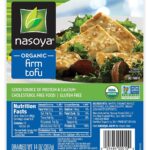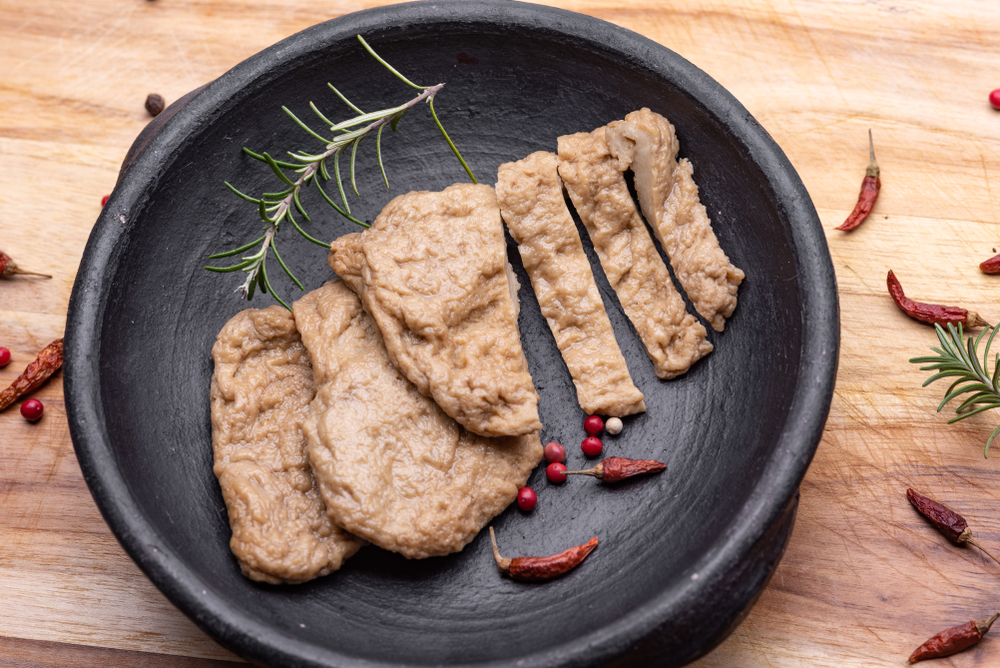The ketogenic diet has been around for decades, yet it’s gained popularity in more recent years. The ketogenic diet is unlike the traditional Western diet in many ways, most notably its low carbohydrate and sugar content. If you’re following a keto diet, you’ll want to ensure the foods and drinks you choose are keto-friendly. If you’re following a keto diet and are also vegan, things get even more complicated.
Seitan is considered keto-friendly. It’s made from wheat protein (gluten) and is very low in carbohydrates. However, it isn’t gluten-free or suitable for people with soy intolerances. Seitan is a great choice for vegans following a keto diet. Some other great keto-friendly protein alternatives are Lightlife Organic Original Tempeh, Chikfu Soy-Free Meatless Crumbles, and Nasoya Organic Super Firm Tofu.
If you’ve never heard of seitan before, you’re probably curious about what it is and if it’s considered healthy. For the full scoop, including other vegan-friendly keto protein options like seitan, read on!
Contents
What is seitan?
Seitan is a plant-based protein source. It’s vegan-friendly since it’s made from hydrated wheat gluten (gluten is the primary protein found in wheat). Seitan is made by kneading wheat gluten with water until it forms sticky strips of seitan.
Seitan is often flavored with soy sauce and other flavors. Because of this, it usually contains soy as well.
How do I use seitan?
Seitan comes in different forms, such as slices and strips. Seitan strips can be used to mimic bacon, while the slices are best used in things like sandwiches or wraps.
Can I make my own seitan?
If you’re having a difficult time finding seitan in your local grocery store, fear not. You can buy vital wheat protein (it’s available online!) and make seitan at home.
Homemade seitan recipes usually include nutritional yeast, a popular staple for vegans and vegetarians. Nutritional yeast helps add flavor to seitan, as well as provides vitamin B12. You can benefit from nutritional yeast even if you’re not a vegan – plus it’s keto-friendly!
Is seitan healthy?
Seitan is generally considered healthy because it’s free of added sugars and rich in protein. However, there are some nutritional drawbacks to consider.
Pros
- Seitan is an excellent source of protein, especially for vegans. It’s also a decent source of iron, which is a mineral that some vegans can become deficient in.
- Seitan is keto- and low-carb friendly because it’s very low in carbs. You might not think a product made from gluten is low-carb, but the parts of bread that are high in carbs are excluded when just the gluten protein is used.
Cons
- Seitan isn’t suitable for people with wheat/gluten or soy allergies or sensitivities. People sensitive to gluten might have a difficult time with seitan because it’s concentrated gluten.
- Seitan typically has flavors added to make it more palatable. Many of these flavorings contain sodium, such as in soy sauce. Eating large amounts of sodium regularly can increase fluid retention and blood pressure levels.
- Seitan isn’t high in fiber, a beneficial nutrient for heart and gut health.
Refresher course on the keto diet
The ketogenic (keto) diet is a very low carbohydrate diet. Most keto diets contain fewer than 50 grams of carbohydrates per day, while stricter keto diets might limit carbs to around 20 grams per day.
The ketogenic diet is high in fat (70-80% of total calories) and moderate in protein. When you restrict carbohydrates and rely on fat for your energy, your body goes into ketosis. Ketosis is a metabolic state where your body burns fat for fuel instead of carbs.
Potential benefits of following a keto diet include weight loss, improved blood sugar levels, and increased insulin sensitivity. However, the long-term benefits of the ketogenic diet have yet to be studied.
What about a vegan ketogenic diet?
The majority of keto-friendly protein sources are not vegan, such as meat, cheese/other dairy, eggs, poultry, and fish. Many vegan protein sources like beans and other legumes aren’t keto-friendly. This makes it very difficult to maintain both a vegan and ketogenic diet. This is where seitan is unique – it’s both vegan and keto-friendly, and is an excellent source of protein.
If you plan to adopt a vegan and ketogenic diet, it’s recommended to consult with a registered dietitian to ensure you meet your nutritional needs and don’t develop any deficiencies.
How can I tell if a food is keto-friendly?
Some foods have a keto stamp on them to make it easy to determine if it’s keto-friendly. However, most foods won’t necessarily have this stamp even if they are keto-friendly.
In general, keto-friendly foods are low in net carbohydrates. Net carbohydrates are the amount that impacts blood sugar levels and ketosis. To determine the net carbs, subtract dietary fiber from total carbs. Most keto-friendly foods will contain around ten or fewer grams of net carbs per serving, but that isn’t a set-in-stone rule.
Is seitan keto?
Seitan is keto-friendly because it’s very low in carbohydrates. It isn’t a significant source of fat, though; to meet your keto macros (the target for fat, carb, and protein totals per day) you’ll need to ensure you get plenty of high-fat foods in addition to seitan.
You might be wondering how something made from a protein in wheat is low-carb. Starches are what make wheat high in carbs. Unlike bread/other grains, seitan only contains the wheat protein, not the starch.
Seitan Nutritional Information
Seitan isn’t a super well-known food, so it might be difficult to find at your grocery store. You’ll probably have good luck looking in the specialty foods/health food sections, or at a special health food grocery store such as Whole Foods.
Upton Naturals Traditional Seitan
Ingredients:
- Water
- Vital Wheat Gluten
- Soy Sauce (Water, Soybeans, Wheat, Salt)
- Whole Wheat Flour
- Sea Salt
- Garlic
- Onion
Nutrition facts (per 2 ounces):
- Calories: 90
- Total Fat: 0.5 g
- Saturated Fat: 0 g
- Sodium: 440 mg (19% DV)
- Total Carbohydrate: 5 g
- Total Sugars: 0 g
- Protein: 18 g
Marinated Seitan Deli Slices By BE-HIVE
Ingredients:
- Vital Wheat Gluten
- Filtered Water
- Soy Sauce (Water, Wheat, Soybeans, Salt)
- Nutritional Yeast
- Garlic Granules
- Olive Oil
- Lemon
- Red Wine Vinegar
- Contains Less than 2% Spices and Seasonings
Nutrition facts (per 2.7 ounces)
- Calories: 110
- Total Fat: 2 g
- Sodium: 290 mg (12% DV)
- Total Carbohydrate: 4 g
- Dietary Fiber: 1 g
- Total Sugars: 2 g
- Protein: 19 g
Sweet Earth Traditional Seitan Slices
Ingredients:
- Water
- Vital Wheat Gluten
- Soy Sauce (Water, Soybeans, Wheat, Salt, Alcohol)
- Nutritional Yeast
- Ginger
- Rice Bran Oil
- Rice Vinegar
- Kombu
Nutrition Information (per 3 ounces):
- Calories: 130
- Total Fat: 3 g
- Saturated Fat: 0.5 g
- Sodium: 340 mg (15% DV)
- Total Carbohydrate: 6 g
- Total Sugars: 0g
- Protein: 22 g
Keto Alternatives to Seitan
If you aren’t a vegan and want keto-friendly protein sources, you’re in luck! Most protein sources on the keto diet are animal-based such as meat, chicken, eggs, and some dairy products.
However, if you are a vegan wanting keto-friendly proteins other than seitan, there are plenty of other options to choose from.
Lightlife Organic Original Tempeh
 Tempeh is made from cultured soybeans and has brown rice added to give it a heartier texture. Unlike tofu, tempeh holds up to cooking well and is less likely to crumble. This tempeh doesn’t have added flavors, so it’s practically sodium-free.
Tempeh is made from cultured soybeans and has brown rice added to give it a heartier texture. Unlike tofu, tempeh holds up to cooking well and is less likely to crumble. This tempeh doesn’t have added flavors, so it’s practically sodium-free.
This tempeh is keto-friendly, as well as vegan-friendly. It does contain some carbohydrates, but the majority of them come from fiber. Fiber isn’t digested or absorbed like other carbs, so it won’t impact ketosis. It’s a good source of iron, which is good for vegans following a keto diet.
Ingredients:
- Cultured Organic Soybeans
- Water
- Organic Brown Rice
Nutrition facts (per 3 ounces):
- Calories: 140
- Total Fat: 4.5 g
- Saturated Fat: 1 g
- Sodium: 10 mg (0% DV)
- Total Carbohydrate: 10 g
- Dietary Fiber: 7 g
- Sugars: 0 g
- Protein: 16 g
- Iron: 10% DV
Chikfu Soy-Free Meatless Crumbles
Many non-meat protein sources contain soy. If you’re allergic to or prefer to avoid soy, these meatless crumbles are a good option and they’re also keto-friendly.
Ingredients:
- Textured Chickpea Protein
Nutrition facts (per 1/2 cup):
- Calories: 130
- Total Fat: 0.5 g
- Total Carbohydrate: 10 g
- Total Fiber: 4 g
- Total Sugars: 1 g
- Protein: 19 g
Nasoya Organic Super Firm Tofu
 Tofu is keto-friendly, vegan-friendly, and gluten-free (unlike seitan). Extra-firm tofu is heartier than soft tofu so is great for stir-frying, while soft tofu is better for puddings, smoothies, etc. Like all tofu products, it is not soy-free.
Tofu is keto-friendly, vegan-friendly, and gluten-free (unlike seitan). Extra-firm tofu is heartier than soft tofu so is great for stir-frying, while soft tofu is better for puddings, smoothies, etc. Like all tofu products, it is not soy-free.
Ingredients:
- Water
- Organic Soybeans
- Less than 2% of Magnesium Chloride, Calcium Sulfate
Nutrition facts (per 1/5 piece):
- Calories: 130
- Total Fat: 7 g
- Saturated Fat: 1.5 g
- Sodium: 10 mg (0% DV)
- Total Carbohydrate: 2 g
- Dietary Fiber: 2 g
- Total Sugars: 0 g
- Protein: 14 g
Related Questions
Is seitan tofu?
Like tofu, seitan is a vegan and keto-friendly protein source. They are not the same, though – seitan is made from gluten protein (also called vital wheat protein) while tofu is made from soybeans.
Is seitan low FODMAP?
Because it’s primarily made from gluten, seitan is not low FODMAP. In fact, seitan might cause more significant digestive upset in people sensitive to FODMAPs because it’s primarily gluten, which is one of the main FODMAPs. Some people don’t digest gluten well, so seitan wouldn’t be a good choice for these people.
Is seitan vegan?
Seitan is a vegan-friendly protein source because it doesn’t contain any animal-derived ingredients.
Is seitan gluten-free?
Seitan is made from wheat protein (gluten), so it is not gluten-free.
